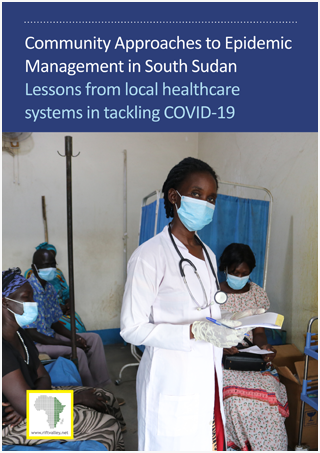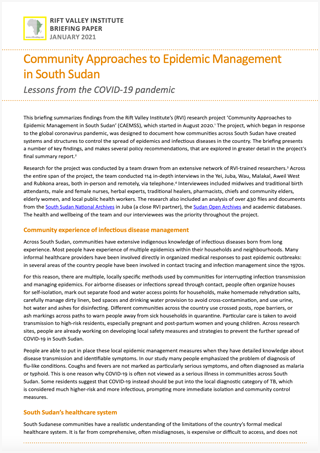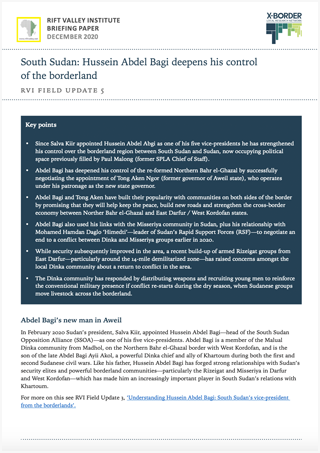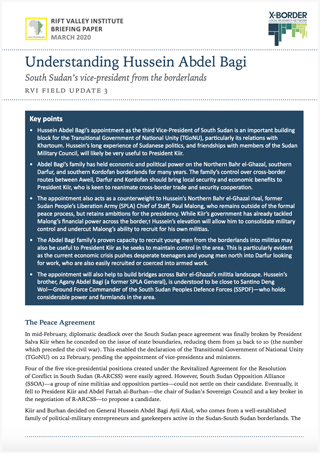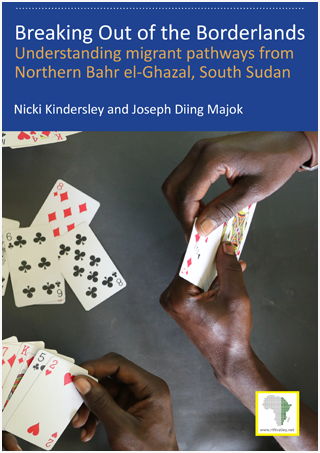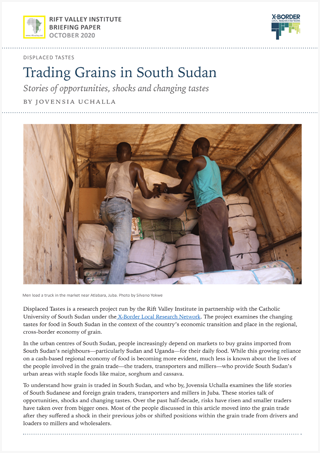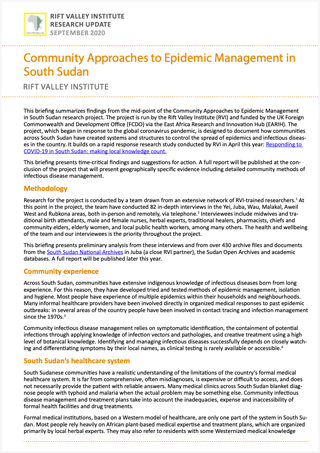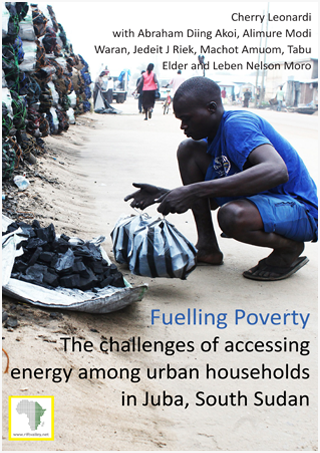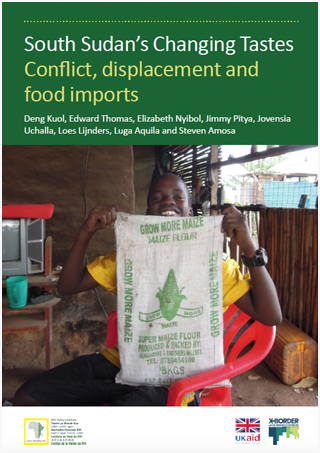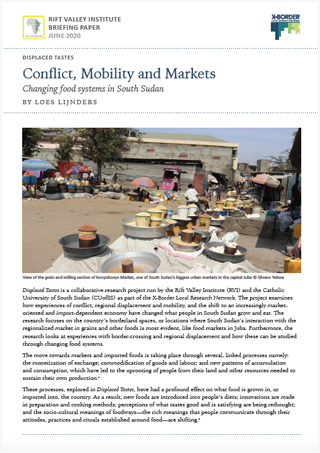South Sudanese people have extensive knowledge of infectious diseases and experience of organizing responses to epidemics during wars and other crises. There are multiple, locally-specific methods used by communities for interrupting infection transmission and managing epidemics. This report documents…
RVI publishes books, research reports, research papers, briefings and meeting reports in a range of formats. Publications cover policy, research, arts, culture and local knowledge in the countries of eastern and central Africa. Research publications—books, reports and papers—are peer-reviewed. Some RVI publications are also available in French and/or Arabic.
The RVI is a signatory of the Budapest Open Access Initiative (2001); all publications are free for download in PDF format under Creative Commons licences. The views expressed in books and reports published by the RVI are those of the authors, not the Institute.
SEARCH
PUBLICATION TYPE
LANGUAGE
REGION
COUNTRY
This briefing summarizes findings from the Rift Valley Institute’s research project, Community Approaches to Epidemic Management in South Sudan (CAEMSS), which started in August 2020. The project, which began in response to the global coronavirus pandemic, was designed to document how…
In February 2020 Sudan’s president, Salva Kiir, appointed Hussein Abdel Bagi—head of the South Sudan Opposition Alliance—as one of his five vice-presidents. Abdel Bagi is a member of the Malual Dinka community from Madhol, on the Northern Bahr el-Ghazal…
Key points • Hussein Abdel Bagi’s appointment as the third Vice-President of South Sudan is an important building block for the Transitional Government of National Unity (TGoNU), particularly its relations with Khartoum. Hussein’s long experience of Sudanese politics, and…
Breaking Out of the Borderlands is the second report by Dr Nicki Kindersley and Joseph Diing Majok on South Sudan’s changing borderland economy. The first report in the series—Monetized Livelihoods and militarized Labour in South Sudan’s Borderlands—described the protracted…
Displaced Tastes is a research project run by the Rift Valley Institute in partnership with the Catholic University of South Sudan under the X-Border Local Research Network. The project examines the changing tastes for food in South Sudan in…
This briefing summarizes findings from the mid-point of the Community Approaches to Epidemic Management in South Sudan research project. The project is run by the Rift Valley Institute (RVI) and funded by the UK Foreign Commonwealth and Development Office…
In South Sudan, access to energy is crucial for survival, recovery and resilience in what is an extremely challenging economic and security environment. Fuelling Poverty—a product of the Energy on the Move project—examines the challenges of meeting everyday energy…
South Sudan’s long wars have forced millions of people to leave their own homes, farms and pastures and move to unfamiliar new areas of the countryside, to refugee camps and cities. In the process, they have changed the way…
Displaced Tastes is a collaborative research project run by the Rift Valley Institute (RVI) and the Catholic University of South Sudan (CUofSS) as part of the X-Border Local Research Network. The project examines how experiences of conflict, regional displacement…
Recent Publications

EWNET Writes: Writing Workshop Session I
December 18, 2025
The Ethiopian Women Researchers Network (EWNET) inaugural writing workshop series aims to not only provide women researchers with uninterrupted time for their scholarly projects, but also build a supportive academic community. The first session, entitled ‘EWNET Writes: Writing Workshop Session

SSC-Khaatumo: Perspectives on the significance and implications of its formation
December 12, 2025
On 15 April 2025, during a visit to the city of Las Anod in Sool, Prime Minister Hassan Abdi Barre officially declared the federal government’s recognition of SSC-Khaatumo (SSC-K hereafter) as a federal member state, marking an important milestone in

Aid and Conflict Sensitivity in Contemporary Ethiopia
November 17, 2025
This study assesses conflict sensitivity practices among humanitarian, development and peacebuilding (HDP) actors in Ethiopia. It seeks to raise awareness and foster a deeper understanding of the evolving aid landscape in the country while analysing the challenges that affect conflict-sensitive

